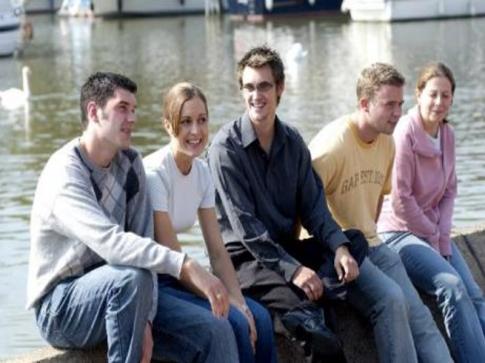Brazil promises 75,000 scholarships in science and technology

The new programme aims to address the shortage by focusing on engineering, health sciences, life sciences and technology. The scholarships will be awarded through the Ministry of Science and Technology's National Council for Scientific and Technological Development (CNPq) and the Ministry of Education's Federal Agency for the Support and Evaluation of Graduate Education (CAPES).
Elie Gardner
The Brazilian government has announced a plan to invest 3.16 billion real (R$; US$2.02 billion) in 75,000 science and technology scholarships by the end of 2014. The initiative, which will send students abroad as part of the government's Science Without Borders programme, was announced on 26 July. The government has challenged the private sector to contribute a further 25,000 scholarships.
Brazil boasts one of the world's 10 largest economies, and ranks 13th in scientific production, according to the Institute for Scientific Information in New York. The country's expanding economy has increased opportunities for scientific collaboration with other nations, and the country has need for chemists, physicists, computer scientists and engineers, says Carlos Henrique de Brito Cruz, director of FAPESP, the São Paulo state research foundation.
“This will have a major impact in allowing Brazilian kids to take their ideas to the limit.”
Increases are expected particularly in the demand for engineers, with the football World Cup coming to Brazil in 2014, and the 2016 Summer Olympics set to be hosted in Rio de Janeiro. But there aren't enough students studying science and engineering to fill that demand. The number of engineering graduates grew by just 1% between 2001 and 2009, compared with 66% for arts graduates, says Aloizio Mercadante, the Brazilian minister of science and technology.
The new programme aims to address the shortage by focusing on engineering, health sciences, life sciences and technology. The scholarships will be awarded through the Ministry of Science and Technology's National Council for Scientific and Technological Development (CNPq) and the Ministry of Education's Federal Agency for the Support and Evaluation of Graduate Education (CAPES).
Home and away
More than 34,000 scholarships will go to students in doctorate programmes. Aid will be also provided for researchers in postdoctoral positions, six-month internships and training for international companies. Just over one-third of the scholarships will be awarded to undergraduates undertaking one-year study-abroad programmes. The government also hopes to attract foreign scientists to Brazil, offering 390 three-year grants to visiting researchers.
The scientific community has welcomed the announcement, which comes after the government cut the science budget by 1 billion R$ in February. But Brito Cruz says that he is not paying too much attention to the actual number of scholarships. "If we manage to send [just] 8,000 or 10,000 good students to have some experience abroad it's going to be a good thing for Brazil," he says.
Mercadante says that the idea is to send students to top universities, mostly in the United States and United Kingdom — including Harvard University and the Massachusetts Institute of Technology in Cambridge, Stanford University in California and the University of Cambridge, UK. In all, there are 238 foreign universities involved in the scholarship programme; the institutes were selected on the basis of Times Higher Education World University Rankings and QS World University Rankings.
Most of these universities require students to speak English. This worries some Brazilians, who say that there is no culture of English-language learning outside the upper middle class. The Ministry of Education says that scholarship recipients will be selected on merit, using ministry-administered exams. Preference will be given to candidates with fluency in English or the language spoken at the host institution.
In a speech last week, Brazil's president Dilma Rousseff said the scholarships would also include criteria related to "gender and ethnicity", although the government has not released additional information to support this.
Private assistance
Miguel Nicolelis, co-director of the Center for Neuroengineering at Duke University in Durham, North Carolina, left Brazil in 1989 to pursue his dream of recording the electrical activity of hundreds of brain cells simultaneously. At the time, his country was plagued with hyperinflation, and he couldn't find public support or funding.
In today's very different landscape, Nicolelis says the study-abroad programme should help to stimulate creativity among Brazil's science students. "When you expose so many kids to a different culture, a different way of doing science, I am sure this will have a major impact in allowing them to take their ideas to the limit," he says.
He believes that this creativity will lead to innovation, an area where Brazil lags behind other nations. But the private sector needs to do more to help. According to statistics from the Brazilian Ministry of Science and Technology, in 2010 the Brazilian state and private sectors invested almost equally in research and development, whereas in China, a world leader in innovation, the private sector invests more than three times as much as the state.
It remains to be seen whether the Brazilian private sector will contribute the 25,000 extra scholarships requested by the government. In the meantime, Nicolelis has returned to his home country on a part-time basis. He directs the International Institute for Neuroscience of Natal, while keeping his position at Duke. He is certain that he will one day make a complete return to Brazil. nature.com




 del.icio.us
del.icio.us Digg
Digg

Post your comment